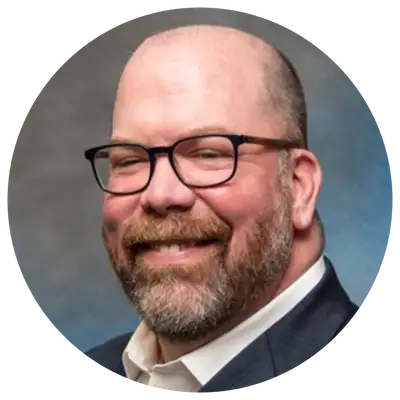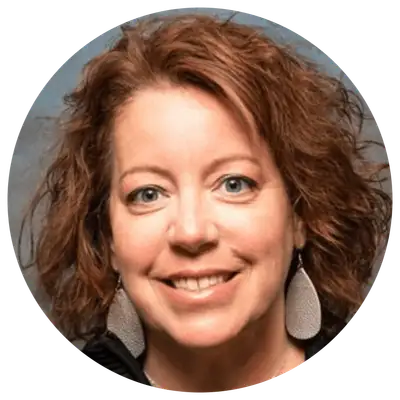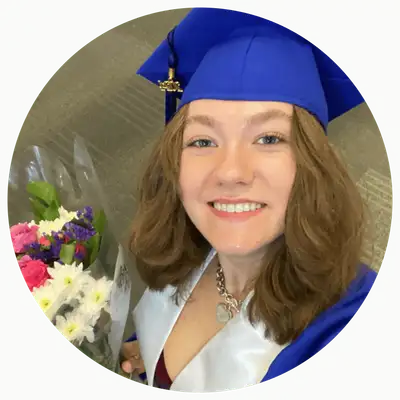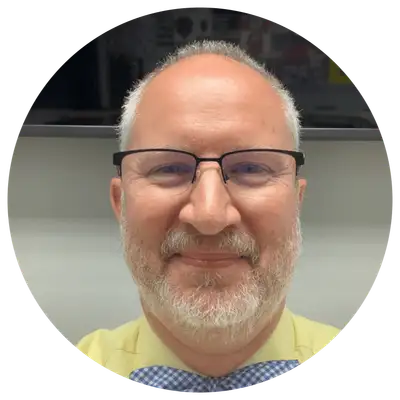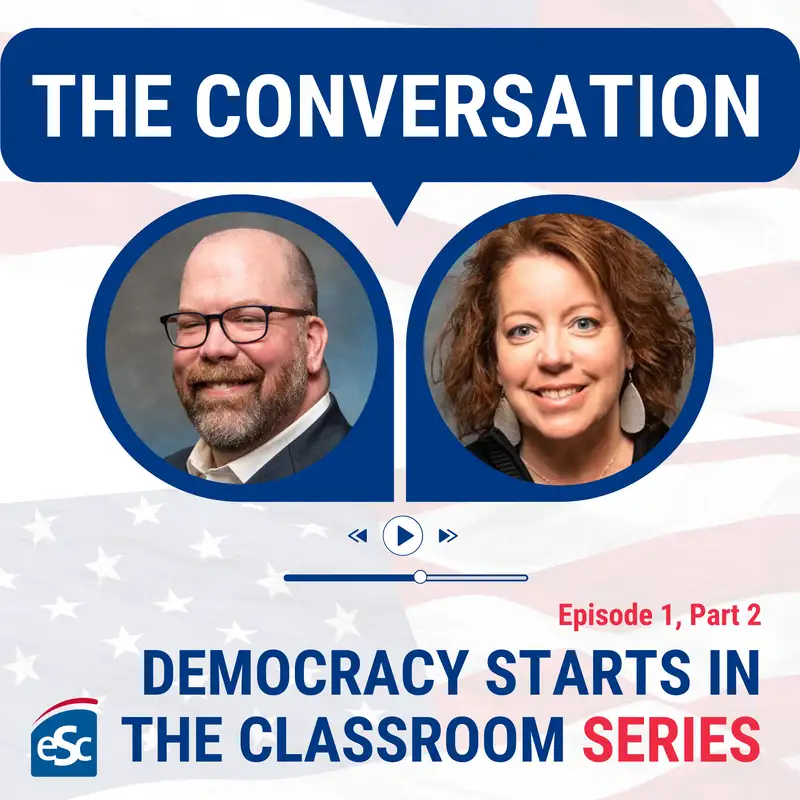
American Political Thought and Radicalism – Part 2
Bella Selph:
This is part two of the American Political Thought and Radicalism episode. If you have not listened to part one of this series, you can find it on our podcast page. Now, back to the conversation.
John Hambrick:
I am sure, and I imagine this course being 50 years strong, how do alumni impact your current and future topics?
David Strausbaugh:
I try to incorporate as many grads as possible because I think it's important for the students to see, former Kilbourne students being active regardless of the cause. And again, we have folks who are all over the political spectrum, but I think it's important for students to see, okay, this could be me. And again, a lot of students are just curious and they're like, no, not me. I'm not a political guy. But at least for students to see maybe a role model in the sense of, okay, here's somebody who was sitting in my seat in this room and now is trying to bring about positive change, and maybe that's something I can do. And to be able to talk to younger students and say, hey, this is what I believe, and here's something for you to consider. Hopefully the students see that as a positive and say, okay, well that person's engaged. I can fall on that footpath, if you will.
Rachel Daniels:
Well, let's switch gears for a moment. As we've noted, this course has been around for 50 years. It's rooted in the historic protests of the 1970s. It's a source of taking students outside of the bubble with which they live in. I'm curious though, what impact this course has had, or what involvement do you see coming from families, Dave? Do you see legacy students, parents who've taken the course and then their students take it? Or there ways in which families intersect and perhaps how do you handle dissent when maybe topics aren't topics that families want their students being involved or discussing? I just want to open the floor up for that thought.
David Strausbaugh:
Yeah, a couple of things. One is I am not sure I've had the parents and then their students, but what I've had is parents who've told their students, you're taking PoliRad. And so I've had a number, all the siblings, they've taken PoliRad and a lot of it's word of mouth and a lot of it's tradition. Over half the seniors take it. It's almost a rite of passage in some ways. For a lot of parents, they encourage their kids to take the course. Maybe they took it back in the eighties or nineties, maybe over at Thomas, and now they're at Kilbourne and they're like, hey, you're going to take the course. Parents are invited to sit in on any of the speakers. Generally speaking, they don't. Number one, their kids may never speak to them again, but number two, I think folks know what they're getting into when they're taking the course.
I think one thing, the expectation from the parents though, is that there's balance. They would expect that you're getting people from both sides of the spectrum. I work hard to do that as best I can with the speakers. It's not always possible, but I try. And generally speaking, I think the parents like the idea that their students are discussing maybe controversial ideas, but there's a format, there's a structure to do that. There's a teacher in there to filter through. I haven't had a lot of pushback from parents, again, because everybody knows what you're getting into. And again, a lot of parents are very supportive. If a parent has concern with a topic or whatnot, obviously hear them out. And again, there's always a choice. If it's like, hey, I had rather not attend that class or whatever, that's their prerogative.
But generally speaking, I think parents want to see an inclusive environment so that again, their students are hearing. And the other thing I should mention here is I tell parents when it's open house night at beginning of the year and all, if you want to talk to your kids, ask them about PoliRad. Kids will come home. How's your day? Fine. What did you do? Nothing. I'm like, if you want a new conversation starter, talk about PoliRad. And generally speaking, the kids are eager to share, and that leads to a lot of good conversations with parents and the students there as well.
Rachel Daniels:
Yeah. Dave, I was just thinking as you were speaking, I'm curious. Bella, from your perspective as a student, how did these topics, this information and even your change of status to a vegetarian impact your home life? How did you share your new learnings and your exploration and new thoughts with your family?
Bella Selph:
Well, my parents actually really encouraged me to take this course. I have four siblings and each one has taken this course. I was the fifth and final to take it. And all of my siblings, they all loved it. I think it helped them identify their own political beliefs as well. My parents really, they encouraged me to seek out my own beliefs and to learn about myself. Going vegetarian, I mean, my mom actually drove with me to an animal rights protest. She is very encouraging, and she and I are actually working on a vegetarian little cookbook full of recipes, and it's been awesome. She says they taste really good. I'm learning how to cook them. It's been really great. I mean, it's hard because being vegetarian, it might change the grocery list, but it's worth it, I'd say.
Rachel Daniels:
Yeah. That's fantastic to hear that you were encouraged to participate like your siblings and that as your reality changes, that your parents are there welcoming that with you. And I love the idea that you're creating a cookbook, and we would love to link a recipe. If you have a recipe that you love, you can share that with us. We can link it in the show notes so folks can get an idea of something that Bella likes to eat that might surprise them if they're not a vegetarian themselves. Thanks so much for that thoughtful comment.
John Hambrick:
Bella, I'm curious, as you've shared and wonderfully, thank you. Social impact, behavioral change, vegetarian change, but how, I'm curious, has this course maybe reframed how you perceive education and how you will continue to pursue education?
Bella Selph:
I would say that this course has really challenged me to put my thoughts into my own words. I feel like a lot of the modern education system in America, it's very take in, repeat. It's all memorization. It's not as much about considering your own ideas and then putting them into words. And that's what I really loved about PoliRad is after the speakers and the presentations, we would write a few paragraphs about our thoughts and feelings about what we saw. And I really loved that because it allowed me to take what I saw, digest it, and put it back into my own words. And it really allowed me to mull over my ideas and my feelings, and I plan on really, and I have been putting that frame into my education. I plan on doing that in college and taking in information and making something out of it rather than taking it in, repeating it and just pure memorization, if that makes sense.
John Hambrick:
It does. And thank you for your perspective. Dave, I want to go back to you. In the many experiences that you've had over the years with this course, was there a moment, a conversation that surprised you or that really sparked an aha moment?
David Strausbaugh:
I would say, I think the course that's been very helpful for me because it has challenged how I view my students. And Bella mentioned the drill and kill that we do in schools, the rote memorization. We tend to have very low expectation of our students. And so what PoliRad does is it reminds me that we're dealing with some very deep thinkers and that the students there, they want to be engaged, they want to change the world, they want to live in a better place. Obviously there are differences of opinions in how to do that, but we do an activism project at the end of each semester where the students can submit and they read a book or they can do a poster or they can attend an actual meeting. But just to see the students are very passionate about, especially with their artwork, but other ways as well.
And the kids have so much to offer, and there's this sense of, hey, kids, someday you'll make important decisions, someday you'll change the world or whatever. But they can do it now and they can do so in very thoughtful and articulate ways. And I think there's always this concern, the students, hey, you're indoctrinating students or whatever. The students are very bright. They're very perceptive, and none of this should be a surprise to me. And the fact that it is, maybe it says something about my expectations, and that's good. They need to be challenged. But I'm always pleasantly surprised by the resiliency, the resourcefulness, the depth of thinking from our students. And what I don't want to see is our teenagers becoming cynical, bitter, being told that there's nothing they can do, and that's not the way it should be. Our most passionate drivers of change should be teenagers with the energy and optimism and really ideas. For me, I guess it felt surprising, call it rewarding, maybe a bit of both.
Rachel Daniels:
Well, we're finding ourselves at the end of our time again. These conversations always go so quickly. But Dave, I would be remiss if I didn't ask you to share one piece of advice that you would offer educators who might be considering starting a similar course in their school.
David Strausbaugh:
Yeah, it's unique. I mean, we've had about 50 years of doing this, so we've been able to develop trust in the community. And so to do a course like this, you're going to have to talk to parents, administrators, students, and develop that trust and say, okay, we're going to have to be trusting of teachers, who they bring in, what they address. We're going to be trusting of students that they'll exercise good judgment. We'll have to be trusting of parents that they'll be supportive and trusting of administrators that they'll give space for the class to grow and evolve. That's going to take time, that's going to take effort. It won't be something that'll just happen, but if you're willing to invest the groundwork, you might be able to develop something that could be very rewarding.
Rachel Daniels:
I like this notion that another educator can't just expect to jump in and get to where your course is, because you're right. There needs to be a foundation laid. And what is so interesting is that there needs to be that foundation laid for the course, and yet you're laying that foundation for high quality communication and discourse practices with your students in the course. It's like a self-feeding well, if you will. Well, folks, we are at the end of our time together today. John and I want to just offer a hearty thanks to both Dave and Bella for joining us today. I think that in education, there are so many gifts that educators provide their students, but Dave, I'm going to quickly identify that one of the best gifts you've given students that is evident in Bella is this ability to articulately state what she's thinking and to find what her truth is for her. And I think that that is beautiful. Helping students figure out how to find their voice is a gift that just can't be quantified.
We are thankful for you being with us today. We will have some links in the show notes for folks, including hopefully a recipe from Bella that we can all try. For John, this is Rachel. Take care. Stay curious and keep the conversation going.
Creators and Guests
